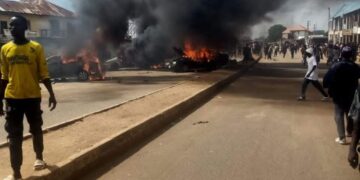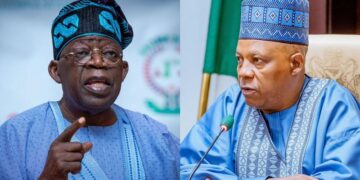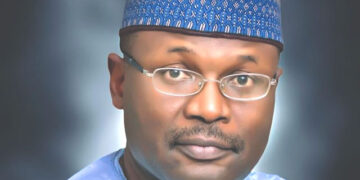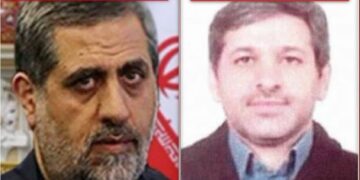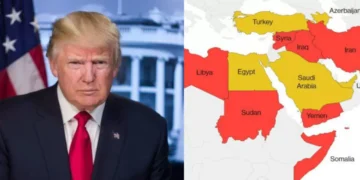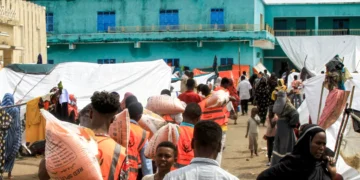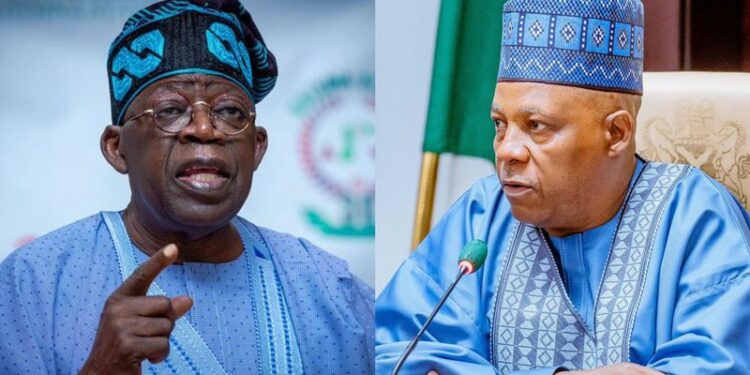As the 2027 presidential election looms on the horizon, fresh political calculations are emerging within the ruling All Progressives Congress (APC), with indications that President Bola Ahmed Tinubu may be exploring a running mate switch.
Political analyst Dr. Sam Amadi has hinted that Tinubu is considering selecting a Christian Vice President from Nigeria’s North Central region, an apparent move to reshape the party’s ticket and broaden its national appeal.
The Director of Abuja School of Social and Political Thought, Dr. Sam Amadi, offered this insight during an interview on Arise TV on Saturday, highlighting the evolving political landscape and strategic considerations for the ruling party.
Amadi’s analysis comes amidst recent speculation of the deteriorating relationship between President Tinubu and his current Vice President, Kashim Shettima.
The omission of Shettima’s name during an endorsement at a recent APC zonal meeting in Gombe further stirred controversy and sparked public debate about his position on the 2027 ticket. Amadi noted that this incident reflected a “certain language control arising from the reality of politics.”0
Drawing parallels to Tinubu’s tenure as Lagos State Governor, where he had a history of changing deputies, Amadi underscored a pattern in Tinubu’s working relationships. He posited that the current situation with Shettima could be influenced by a similar dynamic, albeit on a national scale.
According to Amadi, the strategic shift towards a North Central Vice President would be a calculated move to broaden the APC’s appeal and address the political fallout from the 2023 Muslim-Muslim ticket.
“I think any Tinubu strategist would fancy that an option and say, look what do we lose if we have a Muslim southern and Tinubu and a Christian North Central… which is a zone that has unfortunately not had anybody as vice president or president since 1999,” Amadi stated.
This move, he argued, could help in securing more votes from the middle belt region, a zone Tinubu won in 2023 but could consolidate further.
Amadi cautioned, however, that while a North Central VP might enhance the ticket’s inclusivity, it could also lead to “collateral damage” for the President if Shettima is dropped.
He suggested that Shettima’s camp might have “played the game badly” by publicly reacting to the perceived slight, stating that “no president would like to be with a vice president where some political forces are saying you just have to be on this ticket.”
The analyst also highlighted the changing nature of Nigerian voters, particularly the younger demographic, who he believes are less swayed by ethnic and religious considerations and more by issues of transparency and good governance.
This emerging voter behaviour, he suggested, could alter traditional political calculations and impact how the APC’s strategies play out in 2027.
As political realignments take shape ahead of the 2027 general elections, the speculation surrounding the vice presidency underscores the delicate balancing act President Tinubu and the APC must navigate, between regional representation, religious diversity, party unity, and evolving voter expectations.
Whether the President ultimately reshuffles his ticket or maintains the status quo, the months ahead promise to test the ruling party’s strategic agility and its ability to adapt to Nigeria’s shifting political landscape.


